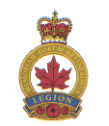|

http://schoolnet2.carleton.ca/books/remember.htm
THE ESSENCE OF A POPPY
(Excerpt from Ministry of Veterans Affairs)
 During the Napoleonic Wars, the poppy drew attention as the
mysterious flower that
During the Napoleonic Wars, the poppy drew attention as the
mysterious flower that
bloomed
over the grves of fallen soldiers.
 In the Twenth Century, the poppy again was widely noticed after soils
in France and
In the Twenth Century, the poppy again was widely noticed after soils
in France and
Belgium became rich in lime from rubble during Worly War I. The little red flowers
flourished around the graves of the war dead as they had one hundred years earlier.
 In 1915, Guelph, Ontario native John McCrae, a doctor serving with the
Canadian Forces
In 1915, Guelph, Ontario native John McCrae, a doctor serving with the
Canadian Forces
Artillery,
recorded this phenomenon in his famous Poen In Flanders Field.
 Two days before the Armistice, Moina Michael, an American woman
from Athens,
Two days before the Armistice, Moina Michael, an American woman
from Athens,
Georgia,
read the McCrae Poem and was inspired to wear a poppy year-round in
memor
of the war dead.
 In 1920, Madame E. Guérin of France visited the United States and
happened to
In 1920, Madame E. Guérin of France visited the United States and
happened to
meet Miss Michael at
the YMCA at Columbia University, where the latter was a
volunteer. Mme.
Guérin then resolved to sell handmade poppies around Armistice Day
to raise money for poor
children in war-torn areas of Europe.
 In 1921, Field-Marshall Earl Haig, the former Commander-in-Chief of the
British Armies
In 1921, Field-Marshall Earl Haig, the former Commander-in-Chief of the
British Armies
in France and Belgium
and the principal founder of the British Legion, was sold on
Mme. Guérin's
fundraising idea and approved organization of the British Poppy Day
Appeal by the Legion to
raise money for poor and disable veterans.
 The same year, Mme. Guérin visited Canada, and convinced the Great War
Veterans
The same year, Mme. Guérin visited Canada, and convinced the Great War
Veterans
Association
(predecessor to the Royal Canadian Legion) to similarly adopt the poppy
as a symbol of
remembrance in aid of fundraising.
 Today, the Poppy Campaign is one of the Royal Canadian Legion's most
important
Today, the Poppy Campaign is one of the Royal Canadian Legion's most
important
programs. The
money raised from poppy sales provides direct assistance for
ex-service people in
financial distress, as well as funding for medical appliances and
research, home
services, care facilities, and numerous other purposes.

REMEMBRANCE DAY FACTS
(From Veteran Affairs Canada)
 |
Remembrance Day commemorats Canadians who died in the First
and Second
World Wars and the Korean War. It is held every November 11. |
 |
The first Remembrance Day was conducted in 1919 throughout
the Commonwealth.
Originally called Armistic Day, it commemorated the end of the First World War on
Monday, November 11, 1918 at 11 a.m.; the eleventh hour of the eleventh month. |
 |
From 1923 to 1931, Armistice Day was held on the Monday of
the week in which
November 11 fell. Thanksgiving was also celebrated on this day. |
 |
In 1931, M.P. Allan Neill introduced a bill to hold
Armistice Day on a fixed day -
November 11. During the bill's introduction, it was decided the word "Remembrance"
would be used instead of "Armistic". The bill passed and
Remembrance Day was
conducted on November 11, 1931. Thanksgiving Day was moved to October 12
that year. |
 |
The poppy is the symbol of Remembrance Day. Replica
poppies are sold by the
Royal Canadian Legion to raise money for needy veterans. |
Some of our favorite sites:
The Millennia Legacy Project
Canadian Military Heritage Project
Canadian Armed Forces
War Amputees
Commonwealth War Graves Commission
Canadian War Museum
|  ROYAL CANADIAN LEGION
ROYAL CANADIAN LEGION 